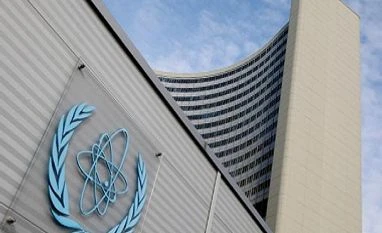IIndia's entry into the elite Nuclear Suppliers Group (NSG) is expected to open up further opportunities for procurement of uranium supply. It will also pave the way for the Indian manufacturers and suppliers of nuclear components to bid in various countries, say nuclear sector experts say. Besides, India will get access to latest technology thanks to NSG membership.
Of the 21 nuclear power reactors with total capacity of 5,780 Mw, as many as 13 reactors with total installed capacity of 3,380 Mw are under International Atomic Energy Agency (IAEA) safeguards and are eligible for imported fuel. The uranium supply for these reactors has steadily increased after exemption from NSG rules governing civilian nuclear trade following the signing of civil nuclear deal by India and the US in 2008. These reactors will benefit the most thanks to increased uranium supply.
According to R K Sinha, the former chairman of Atomic Energy Commission, India has benefited from the NSG waiver thanks to the increased uranium supply to nuclear power plants. “India joining NSG will help further increase in more fuel supply and also in the volume of trade. Moreover, Indian suppliers will be able to bid for supply of various nuclear components in other countries, too,” he noted.
India is already abiding by the NSG guidelines even without being a member, Sinha added.
Kameswara Rao, partner (grid) at PwC, said a key concern is the continued availability of fuel sufficient to operate the plants at high utilisation necessary to maintain viability. “NSG membership is one way to ensure this, as we suffered from the cartel constraining supplies earlier. For suppliers from the US, financing will be largely on commercial basis, which demands guaranteed fuel supplies,” he opined.
According to Department of Atomic Energy officials informed that agreements have been signed with AREVA, France for the supply of 300 metric tonnes of uranium ore concentrate, TVEL Corporation, Russia for 2,000 tonnes of natural uranium dioxide pellets, NAC Kazatomprom, Kazkhstan for 5,000 tonnes uranium ore concentrate, NMMC Uzbekistan for 2,000 tonnes uranium ore concentrate and CAMECO, Canada for 3,000 tonnes uranium ore concentrate.
As on April 15, 2015, AREVA France had supplied 299.87 MT of natural uranium ore concentrate, 1,514.69 tonnes of natural uranium dioxide pellets and 58.28 tonnes of enriched uranium dioxide pellets by TVEL Corporation, Russia and 2,095.90 tonnes of natural uranium ore concentrate by NAC Kazatomprom, Kazakhstan. During 2015-16, JSC TVEL Corporation, Russia had assured to supply about 303 tonnes of natural uranium dioxide pellets and 42 tonnes of enriched uranium dioxide pellets and 250 tonnes of natural uranium ore concentrate by CAMECO, Canada.
HIGHLIGHTS
Of the 21 nuclear power reactors with total capacity of 5,780 Mw, as many as 13 reactors with total installed capacity of 3,380 Mw are under International Atomic Energy Agency (IAEA) safeguards and are eligible for imported fuel. The uranium supply for these reactors has steadily increased after exemption from NSG rules governing civilian nuclear trade following the signing of civil nuclear deal by India and the US in 2008. These reactors will benefit the most thanks to increased uranium supply.
According to R K Sinha, the former chairman of Atomic Energy Commission, India has benefited from the NSG waiver thanks to the increased uranium supply to nuclear power plants. “India joining NSG will help further increase in more fuel supply and also in the volume of trade. Moreover, Indian suppliers will be able to bid for supply of various nuclear components in other countries, too,” he noted.
India is already abiding by the NSG guidelines even without being a member, Sinha added.
Kameswara Rao, partner (grid) at PwC, said a key concern is the continued availability of fuel sufficient to operate the plants at high utilisation necessary to maintain viability. “NSG membership is one way to ensure this, as we suffered from the cartel constraining supplies earlier. For suppliers from the US, financing will be largely on commercial basis, which demands guaranteed fuel supplies,” he opined.
According to Department of Atomic Energy officials informed that agreements have been signed with AREVA, France for the supply of 300 metric tonnes of uranium ore concentrate, TVEL Corporation, Russia for 2,000 tonnes of natural uranium dioxide pellets, NAC Kazatomprom, Kazkhstan for 5,000 tonnes uranium ore concentrate, NMMC Uzbekistan for 2,000 tonnes uranium ore concentrate and CAMECO, Canada for 3,000 tonnes uranium ore concentrate.
As on April 15, 2015, AREVA France had supplied 299.87 MT of natural uranium ore concentrate, 1,514.69 tonnes of natural uranium dioxide pellets and 58.28 tonnes of enriched uranium dioxide pellets by TVEL Corporation, Russia and 2,095.90 tonnes of natural uranium ore concentrate by NAC Kazatomprom, Kazakhstan. During 2015-16, JSC TVEL Corporation, Russia had assured to supply about 303 tonnes of natural uranium dioxide pellets and 42 tonnes of enriched uranium dioxide pellets and 250 tonnes of natural uranium ore concentrate by CAMECO, Canada.
HIGHLIGHTS
- India entered into inter governmental agreements with France, USA, Russia, Namibia, European Union, Canada, Argentina, Czech Republic, Kazakhstan, Korea, Vietnam and Sri Lanka for uranium supply
- There has been progressive improvement in capacity utilization of nuclear plants
- Since 2009 onwards over 3,700 MT of uranium from France, Russia, Kazakhstan already supplied
)